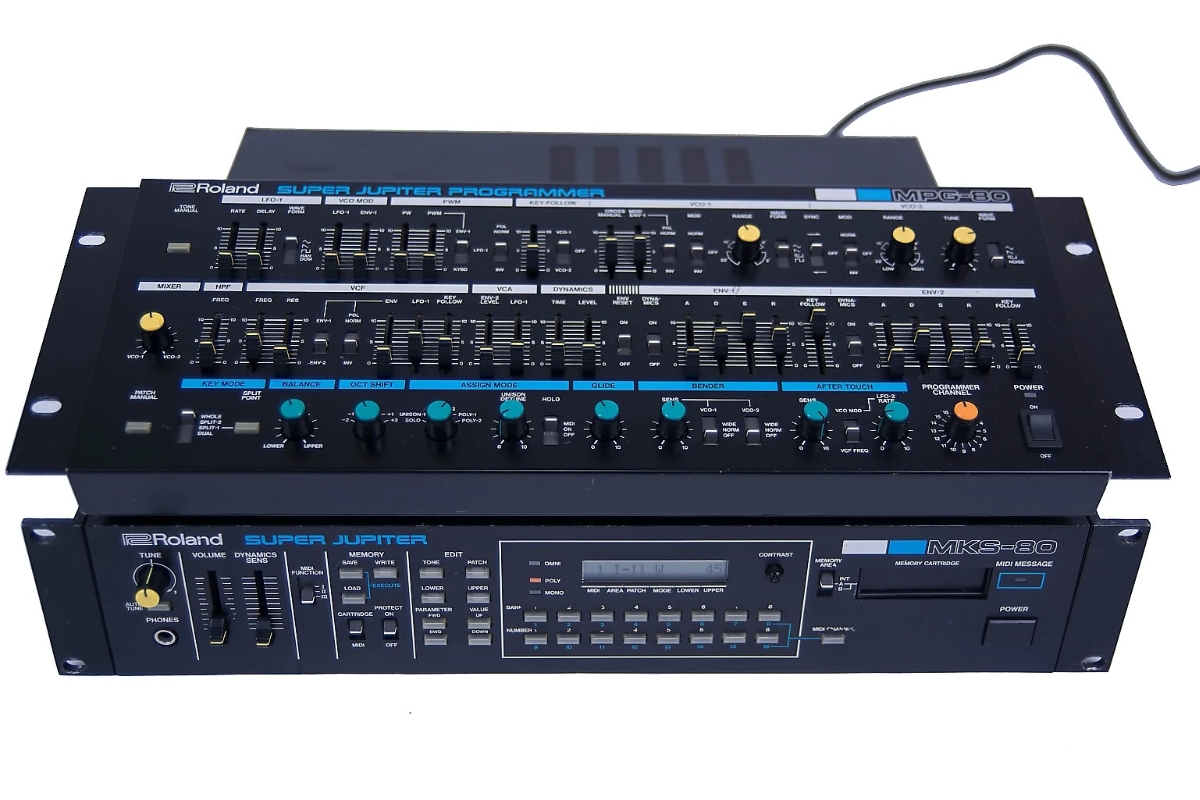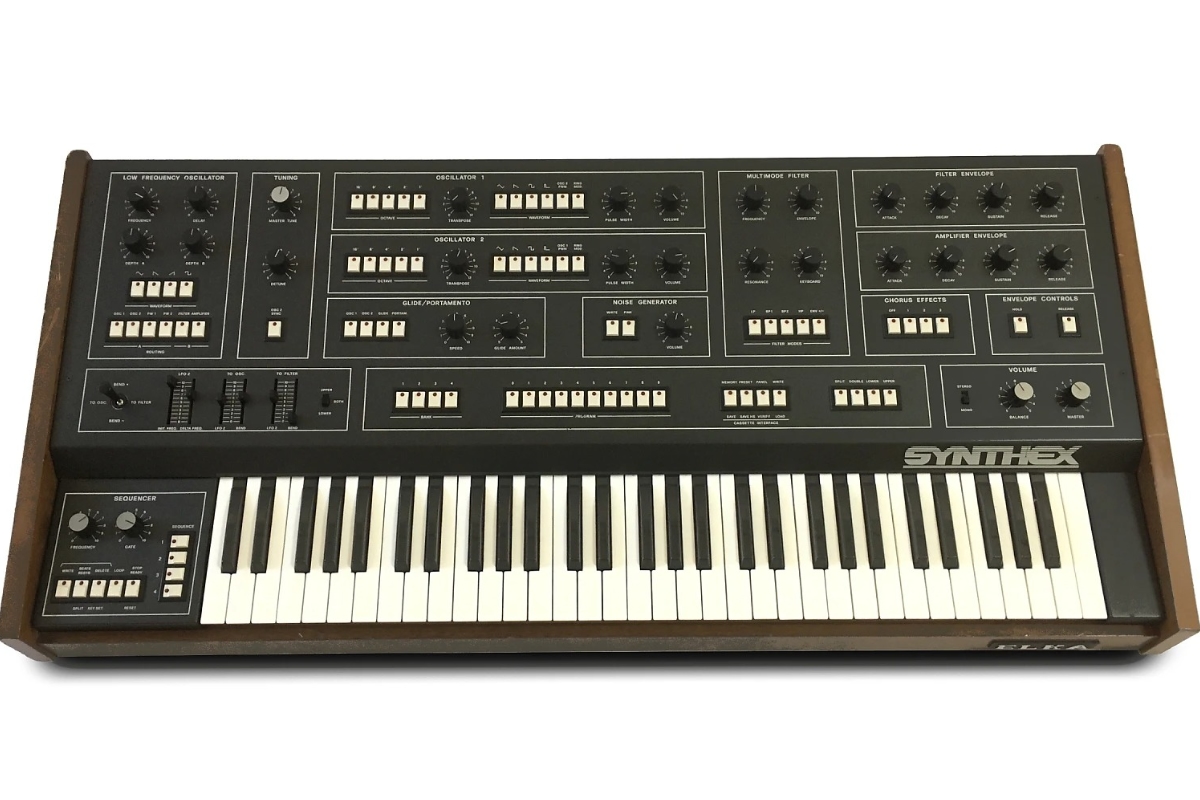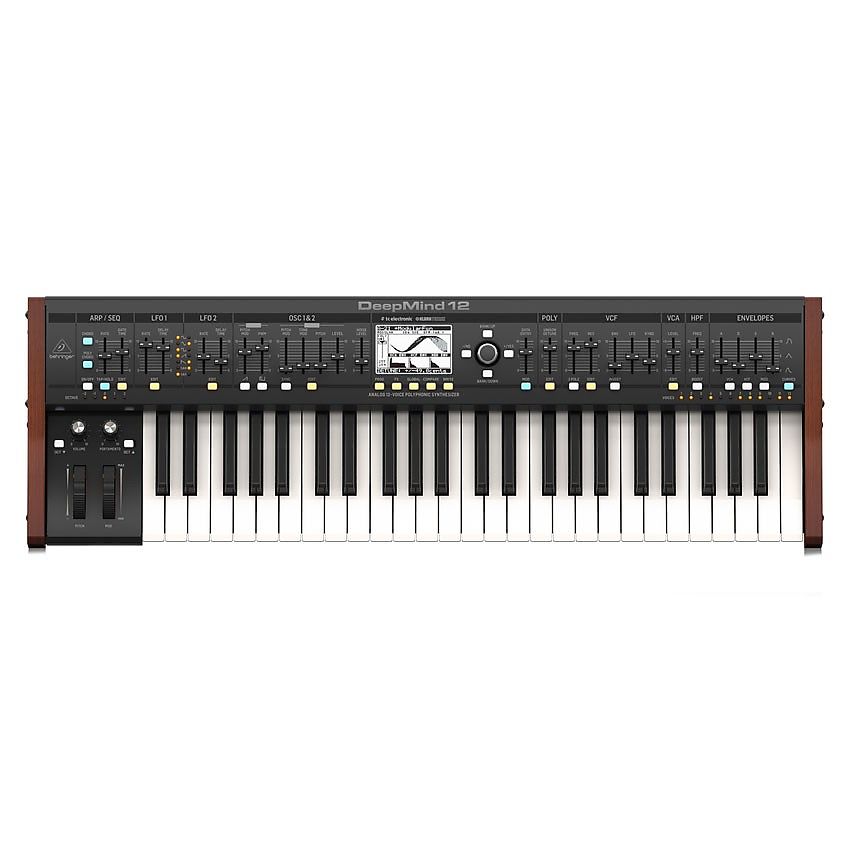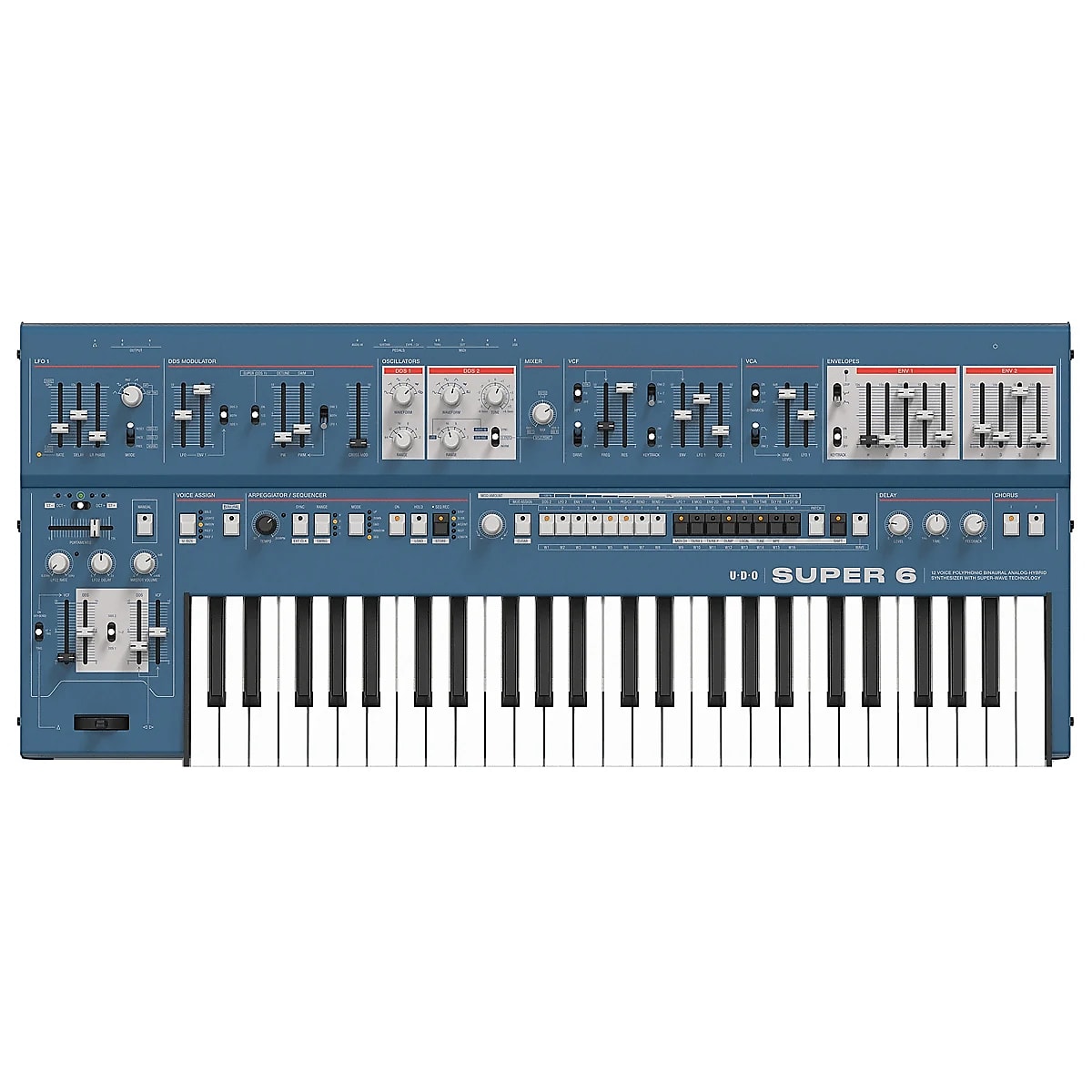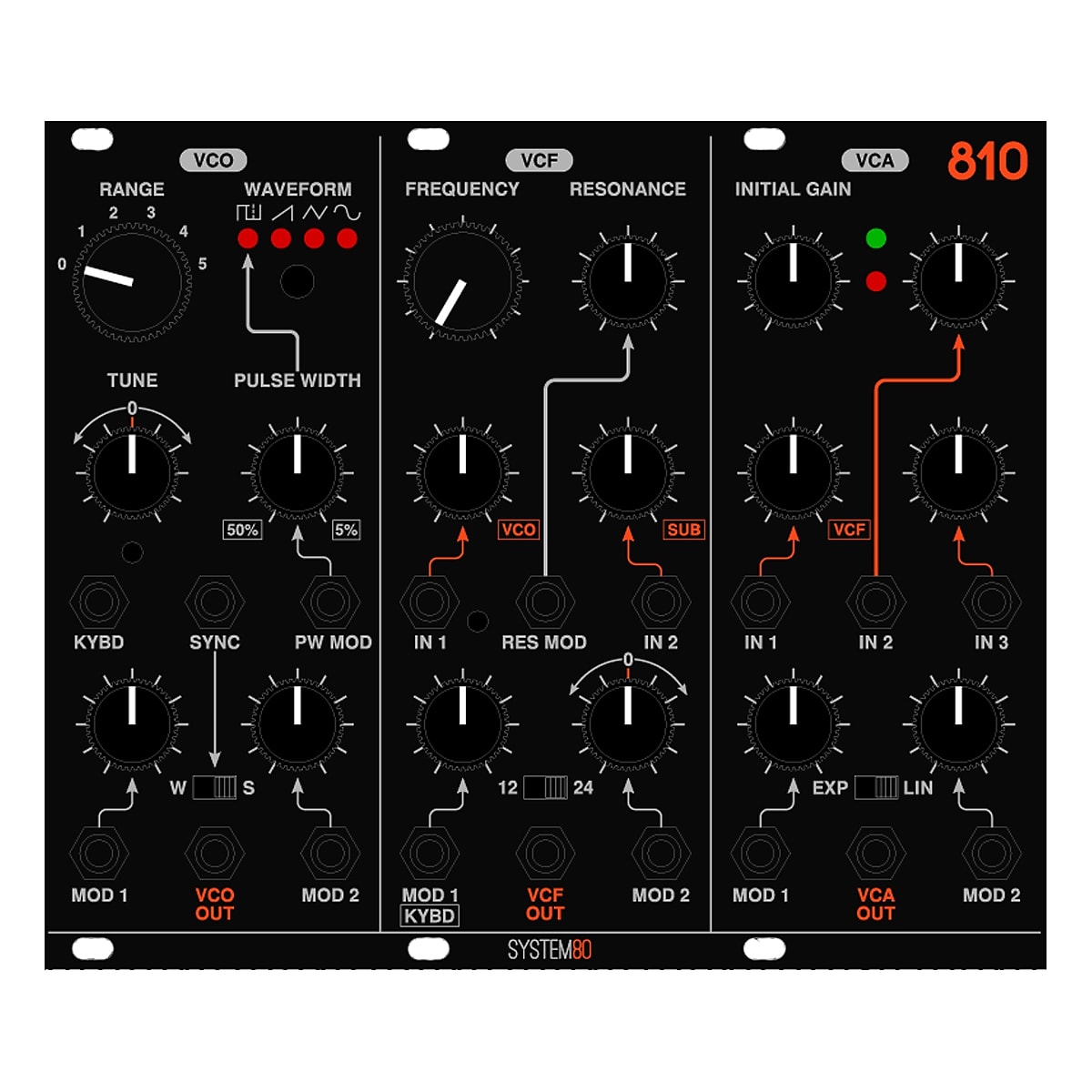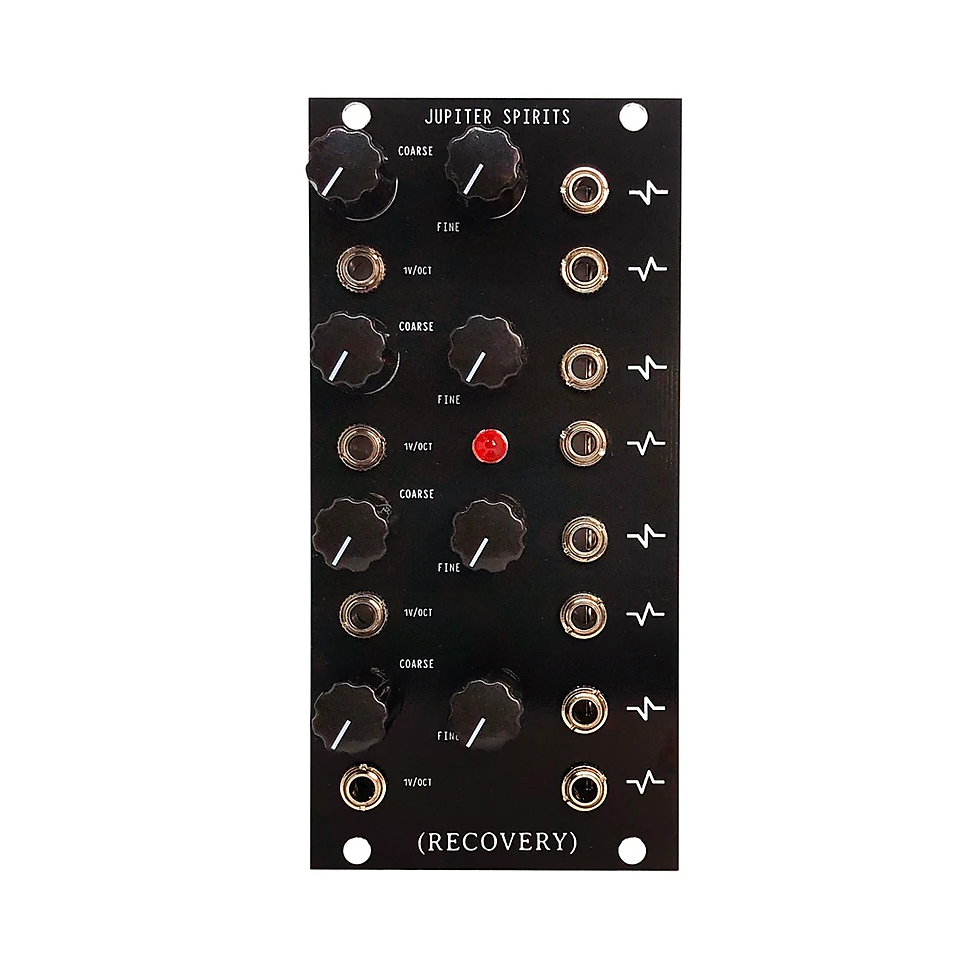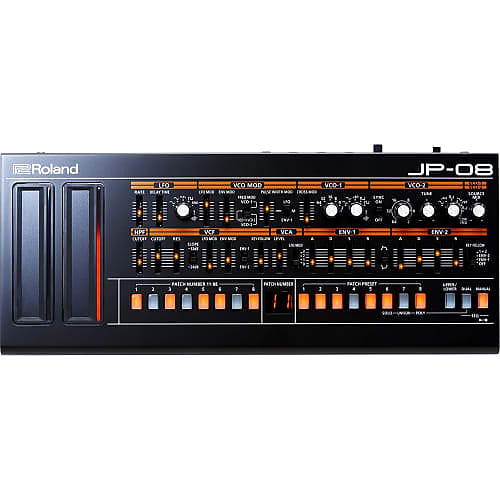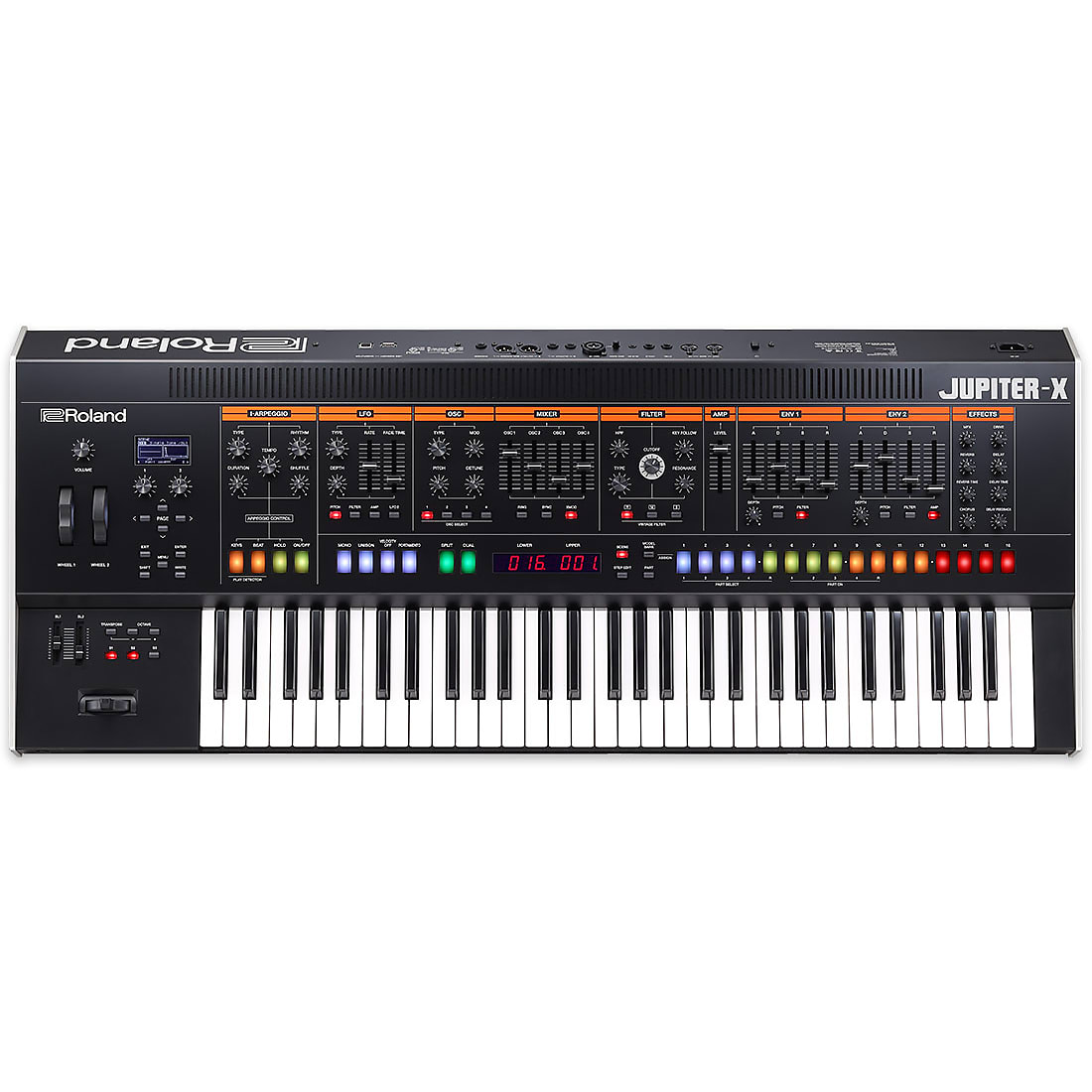Roland’s Jupiter-8 is one of the most iconic synthesizers of all time: the distinctive color scheme, the sexy metal case, the plethora of features, and—of course—the sound. Combine these with a relatively small limited run and you get some pretty eye-watering second-hand prices: they’re currently hovering around the $25K mark—and that’s at the low end. For most of us, this makes it an unobtanium synth, one that we’ll ever only play in our dreams.
So that’s it, then? Time to let go of the obsession, give up, and invest our expendable income in Dogecoin? Don’t let go of the dream just yet, for there are alternatives.
In this piece—the first in a new series—we’ll provide suggestions for ways to get the Jupiter-8 feel for less. Of course, nothing can ever replace an actual JP-8 but unless you’ve suddenly hit it big on the lottery, these are the closest most of us will ever come.
The Biggest Planet In The Synth Firmament
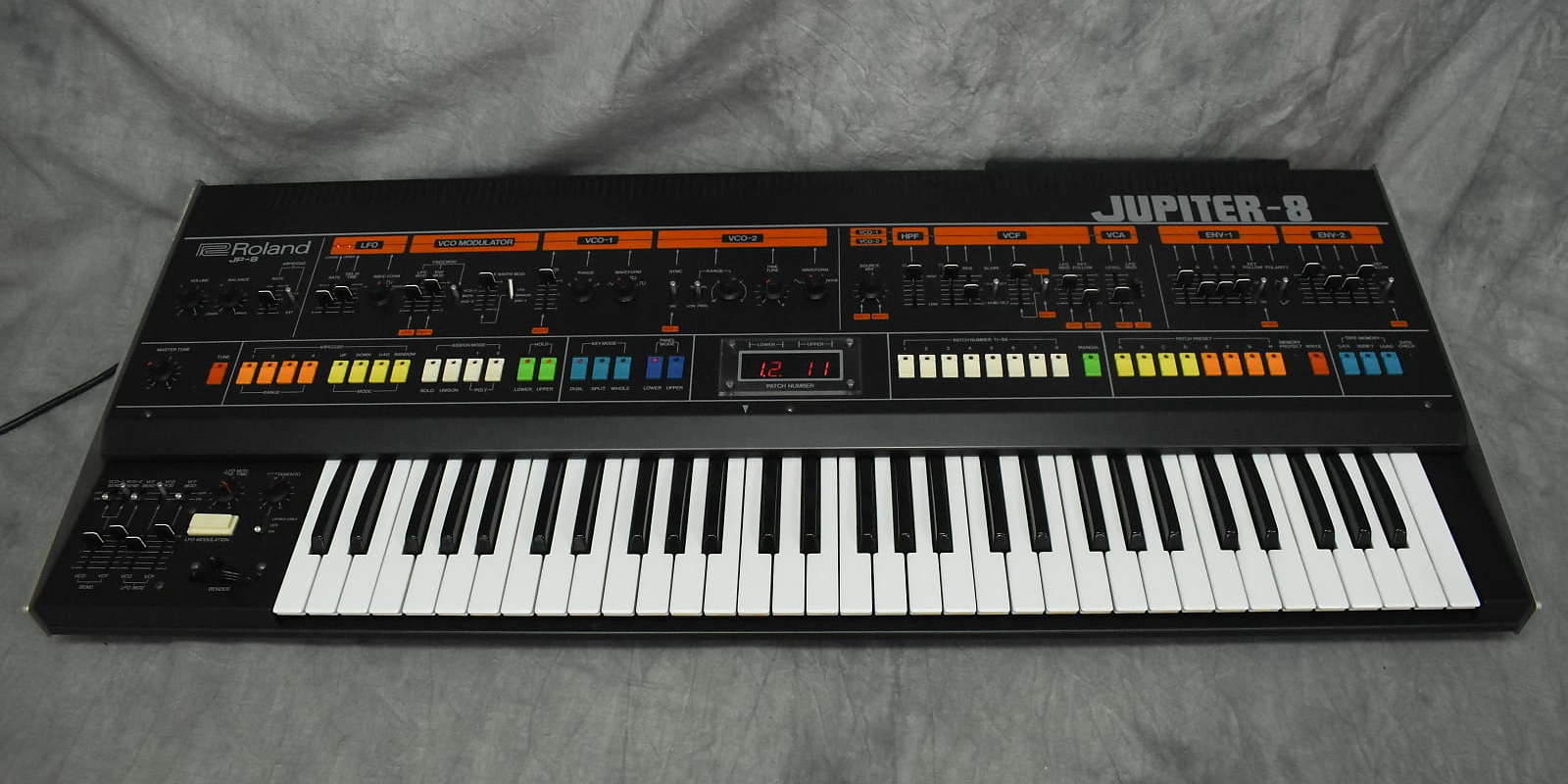
Roland’s Jupiter-8 was released in 1981. The eight-voice follow-up to the four-note polyphonic Jupiter-4, the JP-8 (as it’s also known) set the standard for analog polys for the 1980s. Along with its then-generous note count, the dual-VCO synth allowed you to split the keyboard into two zones with a separate patch on each. It also had pulse-width modulation, cross-modulation and sync, a switchable 2- and 4-pole lowpass filter plus non-resonant highpass filter, an LFO and two envelopes. It was Roland’s flagship model until the end of its production run in 1985.
The Jupiter-8 was a go-to synth for much of the ‘80s, appearing on records by Duran Duran, Michael Jackson, Howard Jones, Tears For Fears, ABBA, Queen, Marvin Gaye, and many others. It was a staple in studios and often used by producers for its clean sound and ability to fit comfortably in a mix.
Given all this, it’s no wonder everyone wants one. What to do after you run out of kidneys to donate? Try a substitution. A quick caveat: nothing will sound exactly like a Jupiter-8, except a Jupiter-8. That said, these suggestions are meant to get you in the ballpark.
Vintage Hardware Alternatives
If you’re looking for cheap, you might want to forget vintage options, although they are certainly cheaper than a Jupiter-8. Let’s start with the Elka Synthex: the legendary Italian synth is Jupiter-esque, with a similar eight voices and two oscillators per voice, although it does have its own characteristics too. The downside: at around $12K, it’s no impulse buy.
Roland released a number of analog instruments bearing the Jupiter name starting with the aforementioned JP-4 in 1978 (around $6-7K), continuing with the Jupiter-6 ($6-8K) in 1983, and ending with the MKS-80 Super Jupiter ($5K and up with its MPG-80 Programmer) in 1984. Although they all share the famous moniker, they are their own instruments and sound different. They may give you similar Jupiter vibes, though, and are significantly cheaper than the JP-8.
One vintage Roland synth that might not be on your radar as an alt-Jupiter is the JX-3P. Roland considers the JX synths to be part of the Jupiter line, and Espen Kraft has a fascinating video showing how close they can get in sound—at around $1000 with the PG-200 programmer, you can’t beat the price.
Modern Analog Hardware Alternatives
There’s currently no modern analog hardware synth that you can definitively say sounds like a Jupiter-8 (at least not yet—more on that soon). There are a few that might scratch the itch though, like Behringer’s Deepmind synths—it’s more Juno than Jupiter but it’s a high-count analog poly with a decent reputation) or UDO Audio’s Super 6. You can grab the Deepmind 12 for around a thousand bucks while the Super 6 is in the mid-two thousands.
We said “yet” and that’s because a few companies are working on clones of the Jupiter-8. Black Corporation is taking pre-orders for its ISE-NIN ($3999) with a release date of mid-September. Behringer has promised two Jupiter-8 clones, a full-size one and the mini Saturn Soul ($99). While the ISE-NIN is tempting (check Black Corp’s Instagram feed for sound demos) the status of the Behringer offerings are currently unknown.
Modular Jupiter
Jupiter-inspired sounds aren’t restricted to normalled instruments. There are a few modular options as well. With its CEM3340 chip, Recovery’s Jupiter Spirits (around $200) is a four-oscillator module that takes inspiration from classic Roland gear, including the Jupiter (as well as the SH-101 and Crumar Spirit). Run this into an AMSynths AM8109 JP-8 Filter ($180), a recreation of the lowpass filter from the Jupiter-8 with the original IR3109 OTA chip in the filter core. If you’d rather get an entire voice in a single module, try the System80 810 ($425), which has a VCO, VCF and VCA inspired by classic Roland gear like the System 700, System 100m, and of course the Jupiter-8.
Roland Remakes
Roland is keenly aware of the position that the Jupiter-8 holds in its legacy and offers a number of digital recreations of the famous synthesizer in both hardware and software forms. The company currently employs two separate analog modeling algorithms. The first, Analog Circuit Behavior (ACB), is used in the Aira line and offers a more realistic emulation at the expense of polyphony and computing power. It’s in the diminutive JP-08 Boutique(around $400) as well as the Roland Cloud Jupiter-8 soft synth (subscription to Roland Cloud of $149 for a lifetime key). If you want the power of ACB in a full-size instrument, the ACB Jupiter-8 emulation comes bundled in the System-8 (hovering around $1500).
Roland’s other current synthesis system is ZEN-Core, which models analog technology holistically. Roland has pre-installed the Jupiter-8 Model Expansion in the two recent Fantom series, Fantom 6/7/8 and Fantom-06/07/08. It’s also in the Juno-X (new at $2099), and of course the Jupiter-X (used from $1850) and Xm(starting at $1175). With its lookalike color scheme and similar body structure, the Jupiter-X is probably your best bet for the full Jupiter-8 experience. If you just want the sounds but not a hardware synth, you can buy the Jupiter-8 Model Expansion (subscription or $149 lifetime key) to use in Zenology (subscription or $229 lifetime key), the ZEN-Core powered soft synth.
Other Software
This leads us to software options. For those of us who love the sound but can do without another keyboard in your studio, Arturia’s Jup-8 V ($149) and Togu Audio Line’s TAL-J-8 ($80) have you covered, sonically. And should you find yourself longing for Jupiter-like controls, keep an eye out for the release of SoundForce’s SFC-8 controller (price TBD), which replicates the look of the Jupiter-8 in a hardware controller. It should work with both software instruments plus other hardware.

